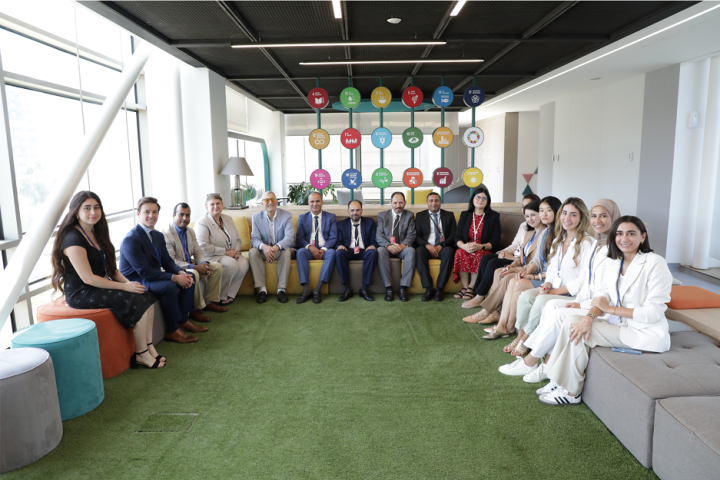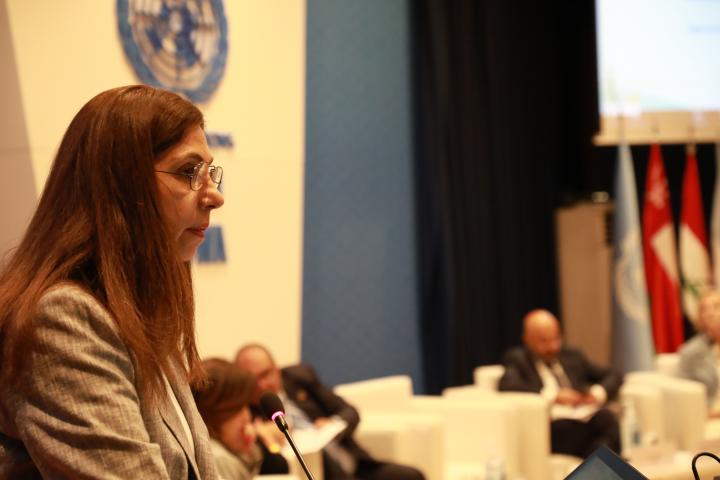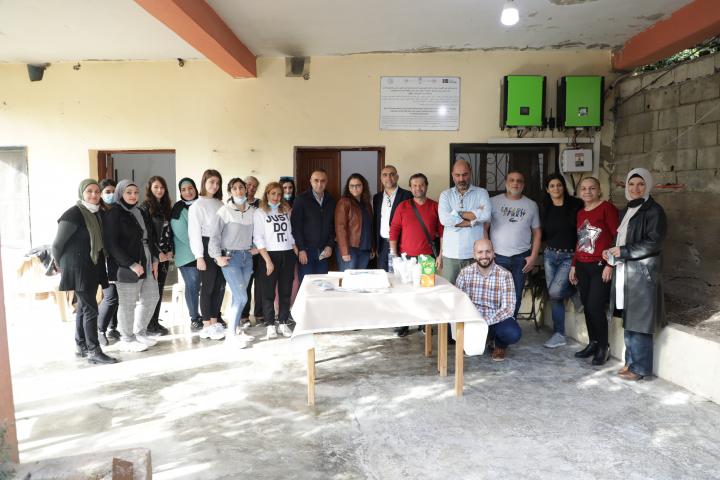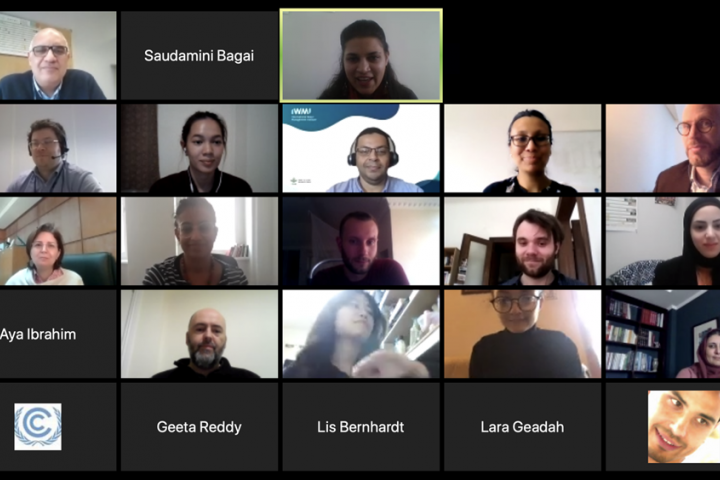Press release
16 Jun 2017
Beirut, Lebanon
ESCWA Marks 2017 World Day to Combat Desertification and Drought
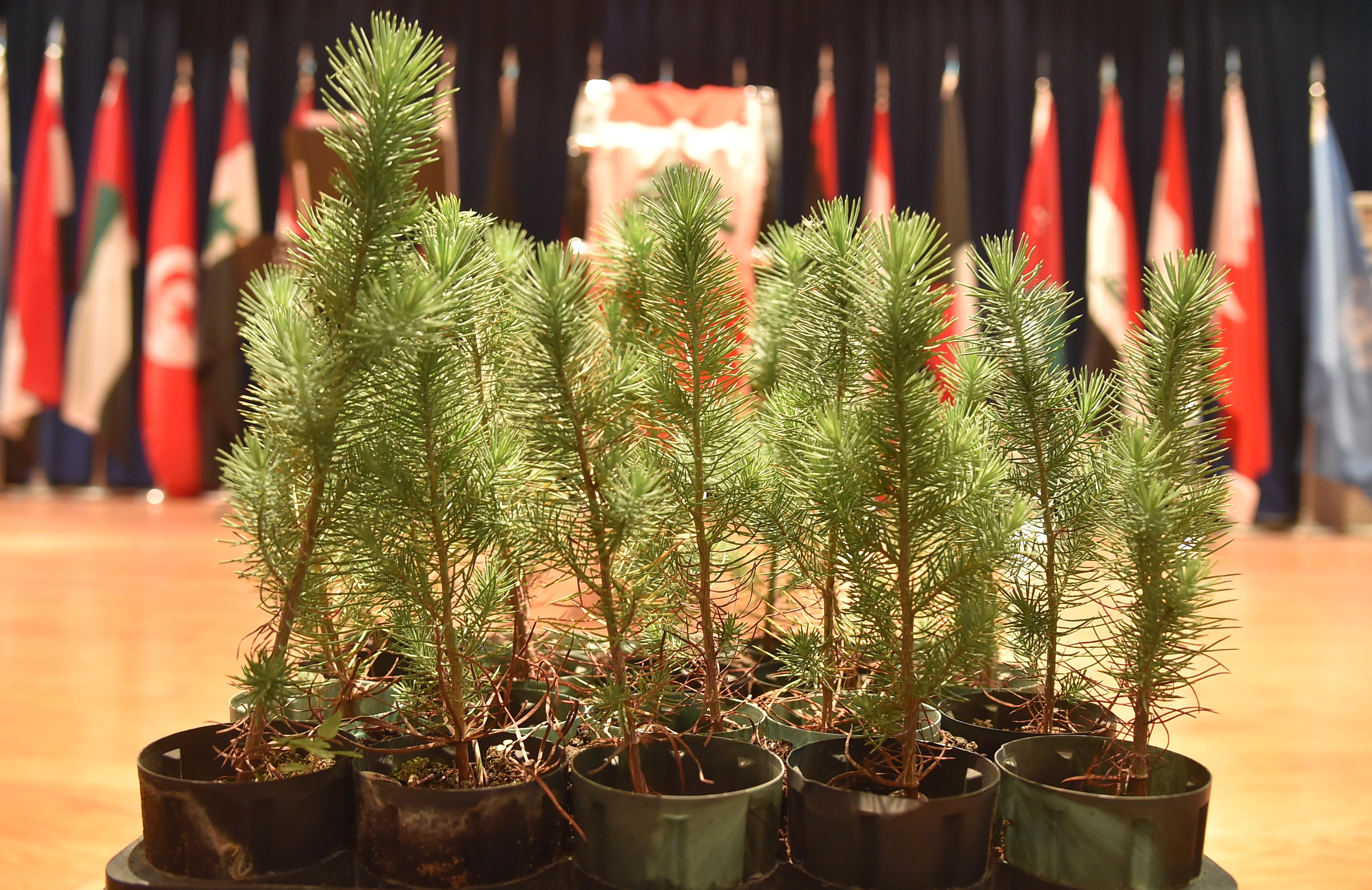
The ceremony, held this year under the theme “Our Land, Our Home, Our Future”, was organised in cooperation with the Lebanese Ministry of Agriculture, the United Nations Convention to Combat Desertification (UNCCD), and Issam Fares Institute for Public Policy and International Affairs (IFI) at the American University of Beirut (AUB), in the presence of delegates of the Diplomatic Corps accredited to Lebanon, several public figures and a crowd of concerned experts and groups.
In his first public appearance since his appointment as Executive Secretary of ESCWA Mohamed Ali Alhakim pointed out that when it comes to the reasons behind desertification, one must note that the ordeals of displacement and migration have had an impact on more than ten million people across the Arab region. According to him, this is mutually affected by and affects environmental issues. Moreover, those predicaments have aggravated the lack of balance in the distribution of populations and jeopardized economic, social, and ecological situations in many countries.
Alhakim added that ESCWA is constantly preparing studies and researches as well as follow-up reports, organising capacity-building programmes, promoting green economy activities and seeking to expand reliance on green technologies, in order to address the impact of climate change and combat desertification.
Opened by the Lebanese and UN anthems played by the Lebanese Internal Security Forces (ISF) orchestra, the ceremony began by a UN documentary on WDCD featuring the major impediment of desertification in several countries. Chief of Food and Environment Policies Section at ESCWA, Reem Nejdawi, provided some background information on the leading international institution on this effort, the UNCCD, and then gave the floor to Miss Lebanon Sandy Tabet who stressed on the role of civil society, universities, and scientific institutions in addition to the private sector, in carrying a large burden with the government which is not able to address all those challenges by itself. She added: Lebanon is lucky to be hosting so many international organisations, such as ESCWA, that provide it as well as other Arab countries with the support needed to come up with policies and programs helping them in achieving real sustainable development.
For his part, Director of the Climate Change and Environment Program of the IFI, Mr. Nadim Farajalla noted: “We have been heavily involved in developing knowledge on climate change adaptation and resilience of urban areas of the region– home to most of the world’s population and 88 percent of Lebanon’s. Our study of the 2014 drought and its impact on various sectors of Lebanon’s economy and communities has given us incites on how governments, communities, farmers and businesses react to such a phenomenon and enable us to come up with thoughts and ideas on the way forward…”
The ceremony proceeded with an introduction to René Moawad Foundation’s work with the rural communities and agricultural sector, presented by its Chairperson, former minister Nayla Moawad. She pointed out that the Foundation was able to provide assistance to around twenty-five thousand farmers by conducting capacity building workshops and offering equipment to cooperatives and other forms of assistance.
Before closing on a lighter and brighter note with Lebanese theatre icon George Khabbaz, Minister Zaayter underscored that the Ministry is aware of all the challenges ahead, and that, despite the limited possibilities, it is endeavouring, thanks to the support of international sides, to devise and implement the national plan to combat desertification. He added that the forty-million-tree program undertaken by the Ministry seeks to put an end to the land degradation.
In the end, Khabbaz charmed the audience with a poem on moral and human desertification, allowing them to part with a hopeful smile that they carried along with the shrubs of cedar and pine offered by the Lebanese Ministry of Agriculture.
* *** *
For more information:
Nabil Abu-Dargham (head of ECIU): +961-70-99 31 44; dargham@un.org
Ms. Mirane Abi-Zaki: +961-70-99 31 55; abi-zaki@un.org
Ms. Rania Harb: +961-70-00 88 79; harb1@un.org
For more ESCWA news, please visit:
Website: www.unescwa.org Facebook: www.facebook.com/unescwa Twitter: @ESCWACIU
